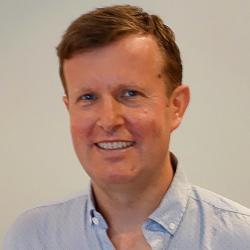
PhD (2019)
Peter is an Assistant Professor in the Department of Economics at the University of Otago. Prior to joining the University of Otago in 2020, he worked as an economist at the Australian Competition and Consumer Commission, providing economic advice relating to both the regulatory and competition remits of the organisation. Before that, he worked as an economic analyst in the Financial Stability Division of the Bank of England. In 2019, he obtained his PhD from CBE’s Research School of Economics.
09 AUGUST 2021
Why did you choose to work in academia rather than in industry?
I chose to work in academia mainly due to my preference for technical research. While there were opportunities to conduct technical research in my past public sector jobs, it was considerably more limited that the opportunities in academia. That said, the opportunity to produce research varies considerably between government departments; some departments provide significantly more opportunities than others.
You’ve worked for both public sector and academia. What do you regard as the top three differences?
The first point of difference, as mentioned above, is the scale of opportunities to conduct technical research.
The second difference relates to career progression. Depending on the specific government department, there may be limitations on the extent to which you can progress as a technical specialist as above a certain level, most of the opportunities for career progression involve managing a large team rather than working as a technical specialist. By way of contrast, in academia, career progression need not entail taking on substantial managerial responsibilities.
Lastly, the character of economic debate in academia and the public sector. In academia, debate at a seminar will be somewhat less restrained and more open than a debate in a government department. As discussions in a government department are often inputs to a decision-making process, their character is typically more cautious, circumspect and political than debates in academic seminars.
What are some things you wish you had known during your PhD that may be helpful in your academic career?
I feel that during my PhD I was reasonably well-informed about the process of embarking on an academic career. Whenever I had any questions, I would ask senior PhD students who had recently been on the academic job market, and also academic staff, such as my supervisor and thesis committee. In addition, the Research School of Economics provided very helpful seminars on the academic job search. By chatting to the right people, you can obtain a great deal of information about embarking on an academic career.
